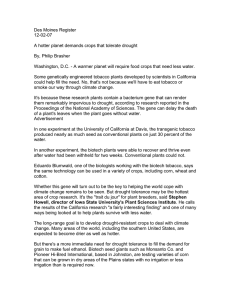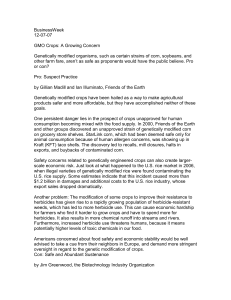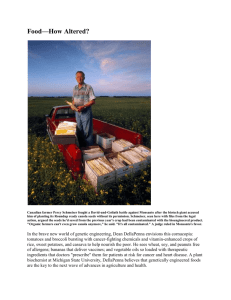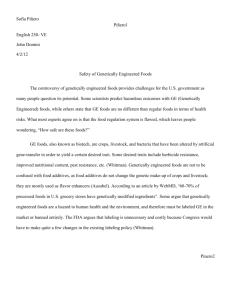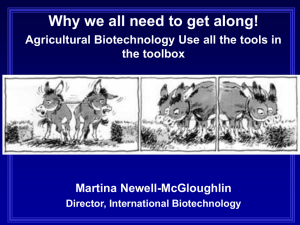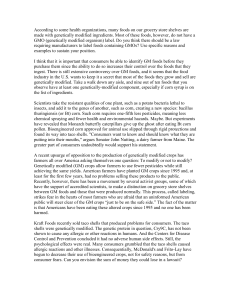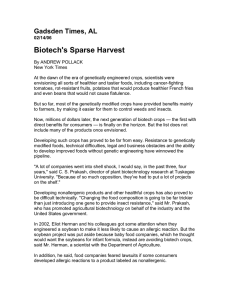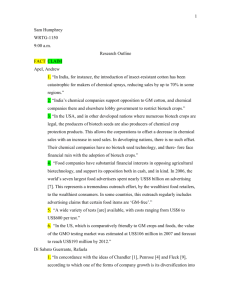New Report Finds Flaws in Biotech Crop Safety Tests
advertisement
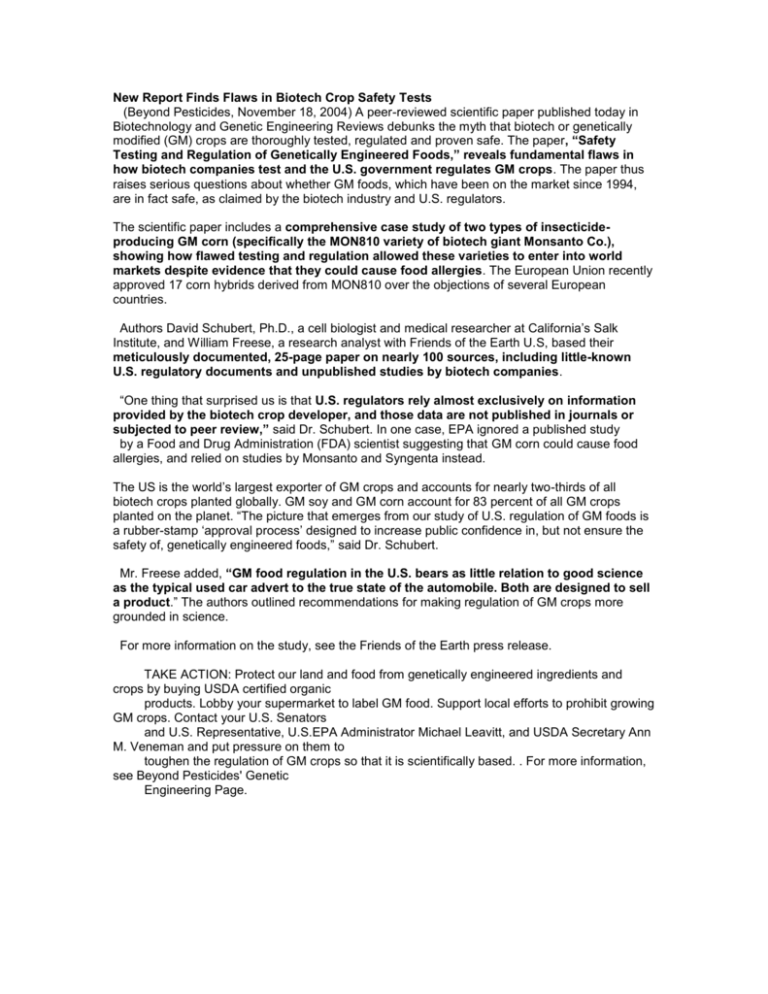
New Report Finds Flaws in Biotech Crop Safety Tests (Beyond Pesticides, November 18, 2004) A peer-reviewed scientific paper published today in Biotechnology and Genetic Engineering Reviews debunks the myth that biotech or genetically modified (GM) crops are thoroughly tested, regulated and proven safe. The paper, “Safety Testing and Regulation of Genetically Engineered Foods,” reveals fundamental flaws in how biotech companies test and the U.S. government regulates GM crops. The paper thus raises serious questions about whether GM foods, which have been on the market since 1994, are in fact safe, as claimed by the biotech industry and U.S. regulators. The scientific paper includes a comprehensive case study of two types of insecticideproducing GM corn (specifically the MON810 variety of biotech giant Monsanto Co.), showing how flawed testing and regulation allowed these varieties to enter into world markets despite evidence that they could cause food allergies. The European Union recently approved 17 corn hybrids derived from MON810 over the objections of several European countries. Authors David Schubert, Ph.D., a cell biologist and medical researcher at California’s Salk Institute, and William Freese, a research analyst with Friends of the Earth U.S, based their meticulously documented, 25-page paper on nearly 100 sources, including little-known U.S. regulatory documents and unpublished studies by biotech companies. “One thing that surprised us is that U.S. regulators rely almost exclusively on information provided by the biotech crop developer, and those data are not published in journals or subjected to peer review,” said Dr. Schubert. In one case, EPA ignored a published study by a Food and Drug Administration (FDA) scientist suggesting that GM corn could cause food allergies, and relied on studies by Monsanto and Syngenta instead. The US is the world’s largest exporter of GM crops and accounts for nearly two-thirds of all biotech crops planted globally. GM soy and GM corn account for 83 percent of all GM crops planted on the planet. “The picture that emerges from our study of U.S. regulation of GM foods is a rubber-stamp ‘approval process’ designed to increase public confidence in, but not ensure the safety of, genetically engineered foods,” said Dr. Schubert. Mr. Freese added, “GM food regulation in the U.S. bears as little relation to good science as the typical used car advert to the true state of the automobile. Both are designed to sell a product.” The authors outlined recommendations for making regulation of GM crops more grounded in science. For more information on the study, see the Friends of the Earth press release. TAKE ACTION: Protect our land and food from genetically engineered ingredients and crops by buying USDA certified organic products. Lobby your supermarket to label GM food. Support local efforts to prohibit growing GM crops. Contact your U.S. Senators and U.S. Representative, U.S.EPA Administrator Michael Leavitt, and USDA Secretary Ann M. Veneman and put pressure on them to toughen the regulation of GM crops so that it is scientifically based. . For more information, see Beyond Pesticides' Genetic Engineering Page.
